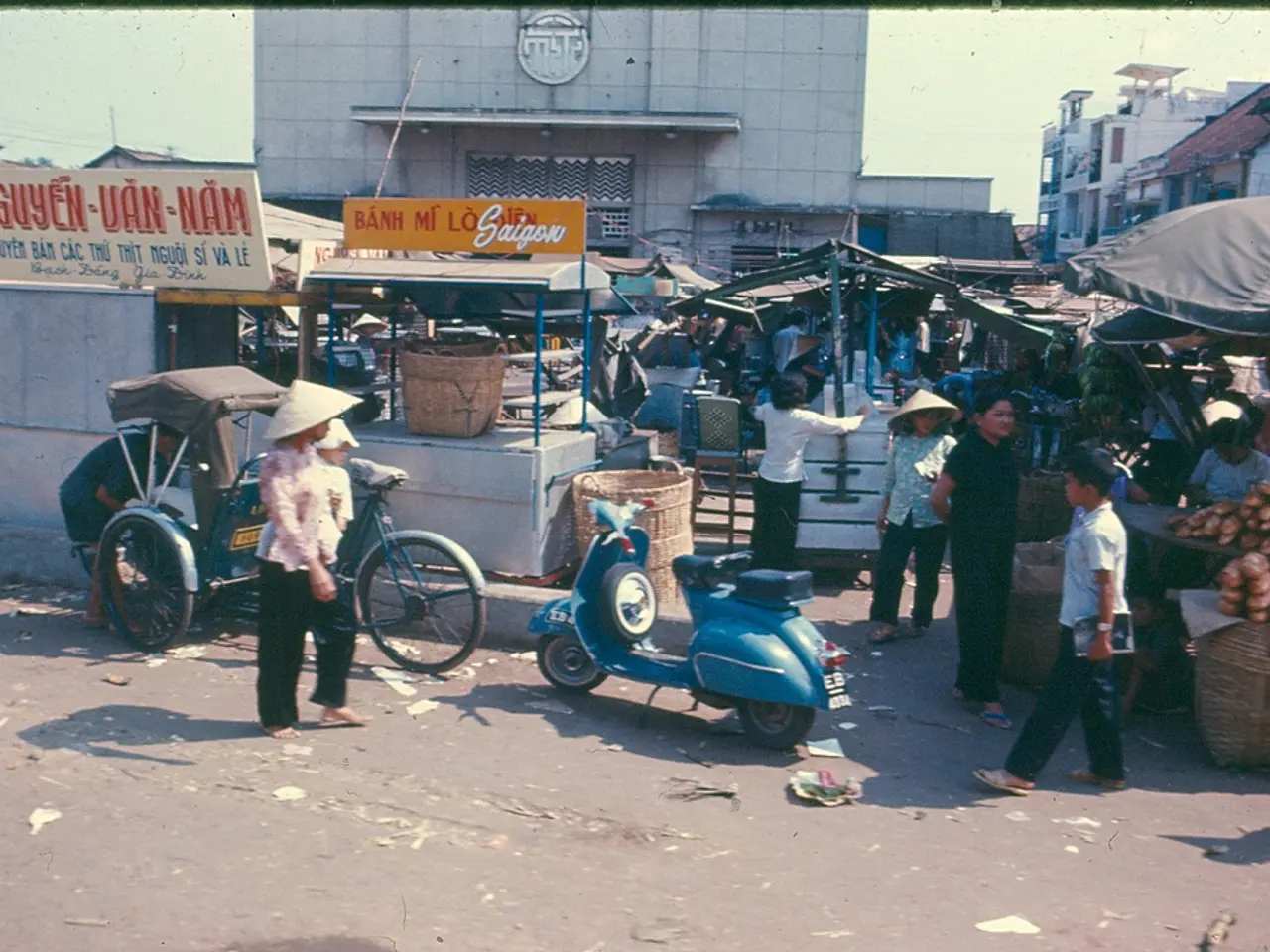Interview Questions for Siddharth Hande, Founder and Chief Executive Officer of Kabadiwalla Connect
In the heart of Chennai, India, a startup named Kabadiwalla Connect is making waves in the waste management sector. Their mission is to optimize informal waste management in developing countries, paving the way for a circular economy.
By connecting various stakeholders—waste generators, processors, recyclers, and brands—Kabadiwalla Connect is developing technology-based solutions that integrate smart waste collection and processing systems. These systems aim to improve the efficiency and sustainability of waste management in urban areas.
At the core of these solutions are digital platforms and apps that connect households and businesses directly with informal waste collectors (kabadiwallas) and recyclers. This direct connection reduces inefficiencies and ensures proper waste segregation and collection.
Data-driven routing and logistics solutions are another key element. These systems optimize collection routes for informal sector workers, improving their productivity and reach. Real-time tracking and management systems facilitate transparency and accountability within urban ecosystems.
Mobile technology is also being leveraged to facilitate easy booking of waste pickup and increase access to recycling services for residents. Kabadiwalla Connect is also working on enabling circular supply chains by linking recyclers and brands, promoting reuse and recycling of materials effectively.
In 2015, Kabadiwalla Connect embarked on a street-by-street census style survey of scrap shops and processors in all 200 wards of Chennai. This survey collected data including demographics, access to finance, business activities, and material flow. The collected data was analyzed and visualized on a data dashboard.
In ward 100 of Chennai, there are approximately 180 waste-pickers and 16 small scrap shops that collect around 720 tons of recyclable waste annually, generating about $170,000 in revenue. Kabadiwalla Connect's long-term goal is to map 100 cities and make the data available on an open-source application for regular updates.
The ultimate vision of Kabadiwalla Connect is to improve the lives of all stakeholders in the informal economy as they work towards a circular economy in the developing world. In India, municipalities spend between 20 and 50% of their budgets on waste collection, and policymakers can use Kabadiwalla Connect's data to create strategies that integrate informal waste collectors into the formal waste management system.
India generates around 70 million tons of waste each year, with over 90% of it being sent to poorly managed landfills. However, the informal waste management ecosystem in India recovers 20% of recyclable post-consumer waste. This ecosystem includes waste-pickers, kabadiwallas, and scrap shops that sell waste materials to large aggregators.
Half of the waste produced in India is organic waste that could be composted, and a quarter of it is recyclable. Kabadiwalla Connect is piloting IoT-enabled smart bins in 1,500 homes in Chennai to track segregated waste and help waste-pickers plan collection schedules. They are also using point-of-sale devices to register waste-pickers as suppliers and create a traceable record of waste sales in Indonesia and India.
Waste bags with QR codes are being used by Kabadiwalla Connect to track the origin of waste, which is crucial for companies demonstrating recycling to the government. Kabadiwalla Connect aims to create raw material procurement guarantees for large processors, ensuring a reliable supply of material from the informal sector.
In conclusion, Kabadiwalla Connect is revolutionizing the informal waste management sector in developing countries. By leveraging digital connectivity, they are organizing and empowering the informal waste sector, reducing urban waste mismanagement, and minimizing the environmental impact in developing cities.
- Kabadiwalla Connect's technology-based solutions, which integrate data-driven routing and logistics, AI, and IoT for smart waste collection and processing systems, are aiming to create a more efficient and sustainable waste management in urban areas.
- The digital platforms and apps developed by Kabadiwalla Connect facilitate a direct connection between households, businesses, waste collectors (kabadiwallas), and recyclers, ensuring proper waste segregation and collection.
- By using mobile technology, Kabadiwalla Connect enables easy booking of waste pickup and increases access to recycling services, fostering a data-driven, circular economy approach in the waste management sector.
- The company's pilots of IoT-enabled smart bins and point-of-sale devices for waste-pickers, along with the use of QR codes on waste bags, contribute to data collection in data-and-cloud-computing for traceability and raw material procurement guarantees in the informal waste sector.
- Through its work, Kabadiwalla Connect's vision is to create a more innovative and sustainable environmental-science stance, helping policymakers create strategies that integrate informal waste collectors into the formal waste management system, reducing both urban waste mismanagement and environmental impact in developing cities.




